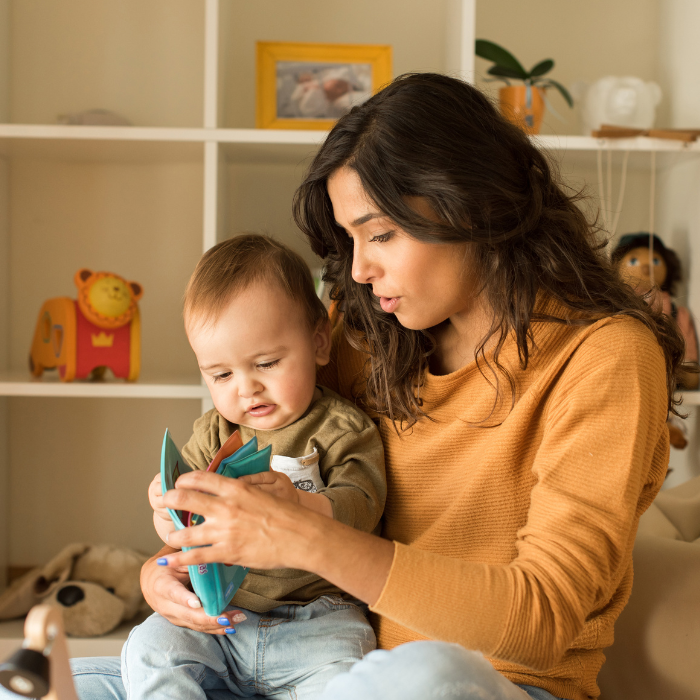
When will my child be ready to have a sleepover? Tiffany Brown takes a look at when to introduce slumber parties (and when to hold off).
Kids are as uniquely individual as the swirls on their fingerprints. One child may be happy and confident to sleep anywhere other than home from a very early age, and another may not feel ready until they’re closer to puberty. Your child’s nature and needs will determine their readiness to sleep over away from home. Be prepared to be the bad guy if you feel they’re not ready, because a disastrous experience could be far more unsettling for a kid than the frustration of missing out. Here are some more points to think about at each age and stage.
Toddlers
The suitability of sleeping over at this age may depend on how verbal they are, and who will host them. Grandparents and close family may be better suited to assuming responsibility for their needs than people you don’t know as well.
Some toddlers are incredibly assertive and able to communicate their needs well. If they seem confident when left in the care of others, they may well be happy to sleep over elsewhere for the night.
Toilet training: if you’re in the middle of training, it could be best to wait until a settled routine develops, unless your child’s host is well known to them, and willing to take on any night duty required!
Night wake-ups should be considered: Are the sleepover hosts happy to manage if children aren’t yet sleeping through the night?
Preschoolers
Ah, the age of enthusiasm! Many preschoolers will express huge excitement at the prospect of sleeping over with friends, but may not be prepared for the reality. (Tearful bedtime pick-ups, anyone?)
Take your time — there’s no rush. Sleepovers should be treated as special rather than an everyday expectation.
Choose times when your child is calm and content to gently talk through the realities of being away from home overnight. As you settle in to read a bedtime story, you might point out that if they were at their friend’s house right now, the friend’s mum or dad would be reading them a story… How would they feel about that?
The ideal candidate for a sleepover is a child who is confident enough to be assertive about their own needs. Often, tearful pick-ups come as a result of the child feeling suddenly overwhelmed or experiencing big emotions which they’re unable to communicate to their host carer.
Primary schoolers
At this age kids may be jumping for joy at the thought of sleeping over with their friends, but your instinct may be telling you they’re still not quite ready. Keep the lines of communication open, and try to be very neutral and low-key about the issue. You don’t want your child to start feeling hung up or overly anxious about the prospect of a sleepover.
It might be helpful to make a plan to progress up to a full night away sleepover. A good alternative is a late afternoon play date, dinner, and a movie at a friend’s house, with a late pick-up.
Staying with another family at a bach, campsite, or on a marae can also help familiarise children with the realities of overnighting with others.
Older primary schoolers
As your child gets older and more independent, it can become more difficult to track their friendships, and often they’ll develop connections with other kids whose families you don’t know well.
It’s essential you always feel comfortable with the situation and the people who are going to be in charge of your child.
Check who is going to be in the home when your child stays over. Other siblings may also have friends staying, which can create a different situation than your child was prepared for.
Still a little uncertain? Offer to host your child’s friend to sleep over at your place instead. This will help you get to the halfway mark for your child, and you’ll be right there to support them through the experience. Talk about it with them afterwards, and encourage them to imagine how it would have been to be in their friend’s shoes.
Intermediate/early college
If you’ve held off till this age before signing off on a sleepover, it may be better not to break the ice with a group of children, such as an overnight birthday party. If something similar comes up and your child wants to take part, try to organise a one-on-one sleepover with a friend or similar-aged cousin in the meantime, to test the waters, and help your child prepare.
Ensure you set boundaries and expectations for the host family; it’s impossible to control what your child is exposed to in terms of media, music, TV, or other people, but you can do your best to express your preferences to the host parents.
BENEFITS OF SLEEPOVERS
- Children feel a wonderful sense of independence.
- All-important resilience can grow as they manage themselves.
- Sleepovers promote assertiveness.
- Confidence! A successful sleepover is quite an achievement.
- Strengthening bonds of friendship.
- Absence makes the heart grow fonder… Next-day reunions can be special.
- Children get the opportunity to see how other families tick.
- Sleepovers can be great training grounds for camp or other away-from-home experiences.
Expert Tip: Expect crankiness the next day! Try to organise a sleepover when the next day will be a low-key one for your family. Whether from nerves, anxiety, insomnia, excitement, whispering late into the night, or midnight feasts… Kids are bound to be off their game the next day, so prepare to take things easy.
Sleepover safety
It could be helpful to establish your unique family parameters early on. Perhaps you’re only comfortable with your children staying over with certain people, or when they reach a certain age. Kids may get scared or homesick, or they may be sleepless or uncomfortable at someone else’s house. Patience, communication, and confidence are the keys to a successful experience. As parents, you must also feel completely confident that the hosts will look after your child appropriately. Don’t be afraid to ask all the questions you need to, and share essential details that might help your child be more comfortable, such as certain routines that are important to them. Ensure your child feels confident if they need to ask to call you. Ahead of time, agree on a phrase code they can use to indicate they want to be collected.








